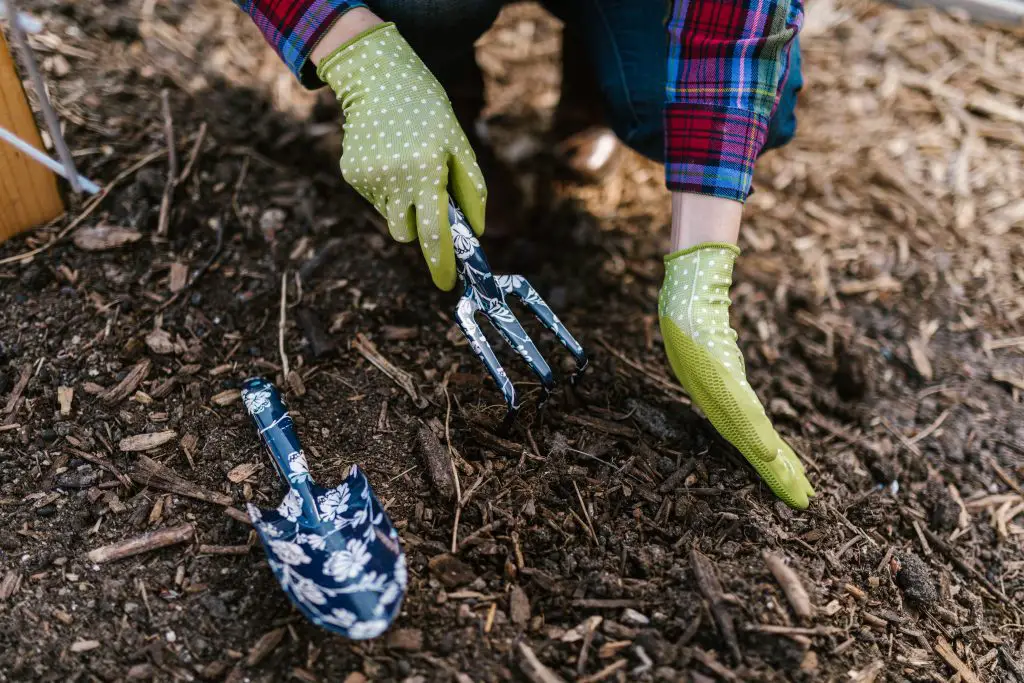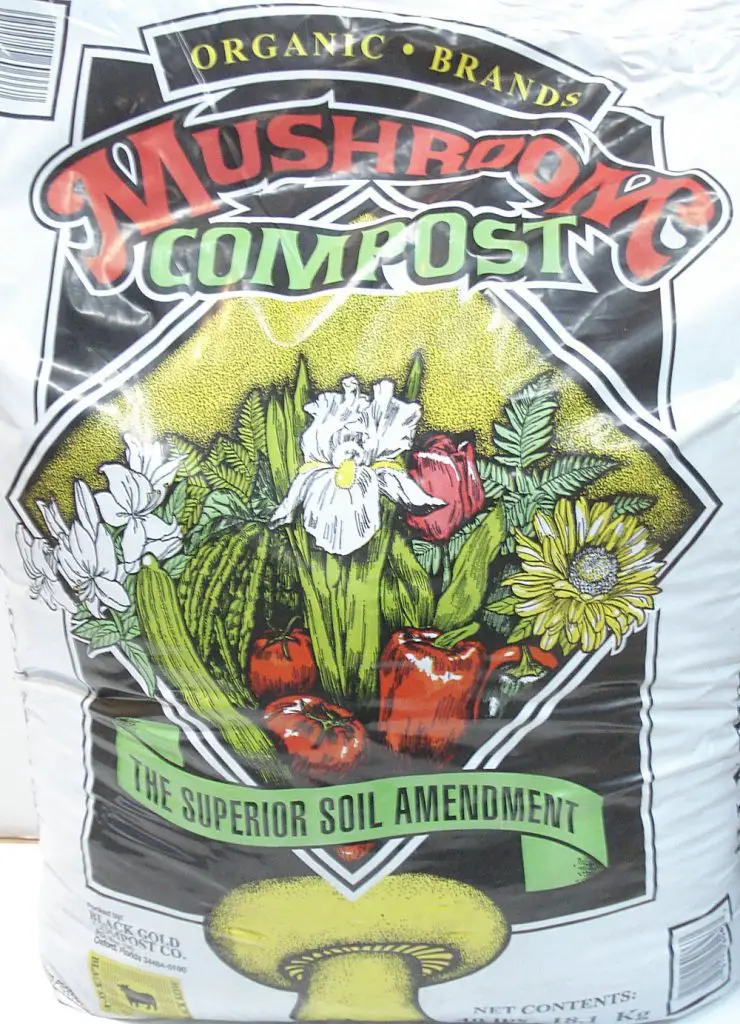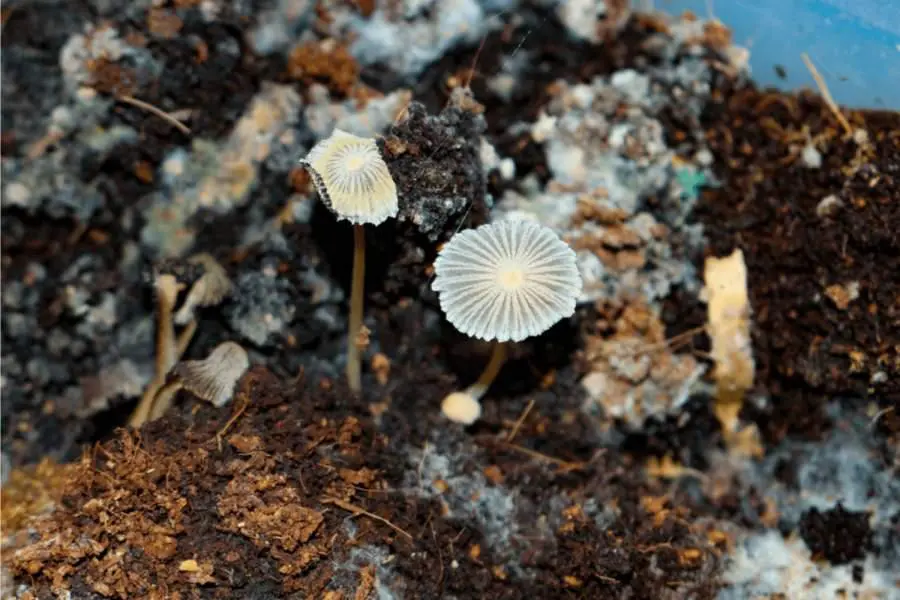If you have a yard full of plants that you want to thrive on, using mushroom compost might be right for you. You may have never heard of it, but it’s a helpful, essential tool for many people looking to let their soil become a suitable home for many plants. Mushroom compost!
This compost is a top-of-the-line organic fertilizer that has gained popularity and many fans over the years, especially from people who want to take care of their home waste.
Typically, mushroom production companies create the compost using organic materials, including hay, grass, corn husk, hulls, and horse, pig, or chicken manure. Many mushroom compost formulas occasionally change due to how mushrooms are grown, differing somewhat amongst producers.
The compost can also include other elements like gypsum, lime, soybeans, and several other organic components. The compost is first steam sterilized to remove hazardous chemicals and weed seeds. Next, the mushroom spawns are added, and the top of the pile is top-dressed with a mixture of sphagnum peat moss and lime to promote the development of mushrooms.

The three to four weeks it takes for mushroom composting to complete are meticulously watched by mushroom farmers to maintain the right conditions. The remaining compost is thrown away when the process is finished and marketed as fertilizers.
Typically, mushroom compost is marketed in bags with the labels SMC or SMS, which stands for spent mushroom compost or spent mushroom substrate. It may be purchased from various garden centers or landscaping supply businesses. Based on how much is needed for the garden, mushroom compost can also be bought by the bushel.
The compost made from mushrooms has several applications. It can be added to the soil for fields, gardening, and container flowers. Yet, this item must be cautiously used due to its high quantities of soluble salt. These salt concentrations can hurt young seedlings, destroy germinating seeds, and affect salt-sensitive plants like azaleas and hydrangeas.
A compost made from mushrooms is a fantastic complement to your gardening efforts. It is an excellent soil builder, keeps the soil wet, and aids in breaking down thick clay.
What Is Mushroom Compost Good For?
By itself, mushroom compost is not a very good soil substitute. Yes, it is effective in producing mushrooms but less effective in growing other plants.
Although it has a limited capacity as a fertilizer, it does exist. It is a 2-1-1 level slow-release fertilizer. It has fewer heavy metals than most other fertilizer options, although it may include more soluble salts. The pH of mushroom compost is considered neutral, which is good for the health of anything growing.
When mixed with soil, mushroom compost is a widely accessible supply of organic material that holds onto water and gradually improves soils resembling clay. It shouldn’t, though, be used in place of regular compost. In fact, it can store too much moisture in the soil, causing waterlogging and other issues for plants.
When still fresh, it can be a helpful mulch since weed seeds have a more challenging time growing there. It needs to be incorporated into the soil as it decomposes more fully. You may add additional soil layers to the mulch layers if you’re planting a no-till garden.
It is also a great addition to lawns as a mild outermost surface. It will gradually ingratiate itself into the soil, enhancing it and aiding in a little boost for the grass. Its small weight won’t overburden your grass or promote weed growth.
Most businesses disinfect the used mushroom compost for sale before bagging and selling it so that it won’t contain any bacteria. Most people desire soil’s helpful microbes to guard their plants against pests and illnesses.
These bacteria can be revived by adding compost tea or normal compost to your mushroom compost. The substance will then be “live,” and microbes will also aid in its decomposition.
In a vermicomposter, your mushroom compost may be used as worm bedding to produce nutrient-rich fertilizer that is teeming with helpful bacteria. Your soil conditions will immediately improve. As a result, therefore, it is worthwhile.
Benefits And Disadvantages
There are pros and cons to using mushroom compost in your garden; in the end, the pros definitely outweigh the cons.
Firstly, mushroom compost improves soil water retention, as mentioned before. Its ability to hold onto water longer than most other composts means that you don’t have to water your plants as much, and they will remain healthy and strong and keep growing. Some studies have shown that you must water your plants half as often because of using mushroom compost.
It is an eco-friendly solution for your garden too. Mushroom compost is a creation of the mushroom growing industry and doesn’t require additional steps to be grown. This means it is eco-friendly and is essentially re-using something already developed.
Mushroom compost is high in calcium, and it also improves soil structure. That means that it will be great at improving drainage in the soil, and it will help break down dense clays and soils over time.
Now, mushroom compost can lead to some water logging because it does a great job retaining water. It can hold onto too much water and damage or even kill plants if too much is used. It can also lead to rot or infections in the plants too.
It is also high in salt, and some plants are susceptible to salt, which can hurt or kill them too.
Buying Mushroom Compost
If you want to purchase mushroom compost for your garden, you have many options on Amazon. For example, you can buy Black Kow Organic Brands Mushroom Growing Mix or your package from Gro Well or Waupaca.

An average mushroom compost package will sell for about fifty dollars, maybe a bit more. Each will give you all you need to start using mushroom compost in your yard immediately. You will then see results shortly after that, typically a few weeks after you begin to sprinkle it into your yard.

